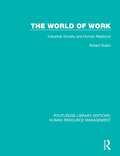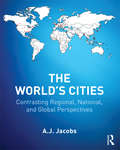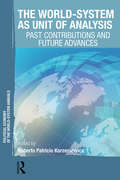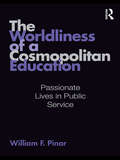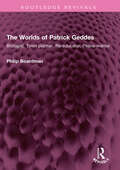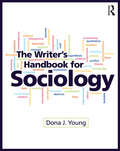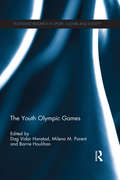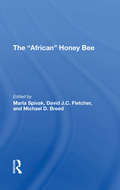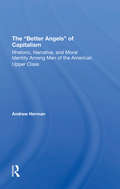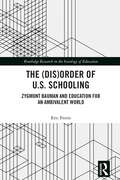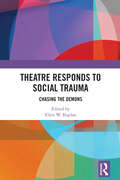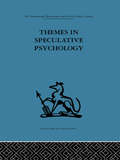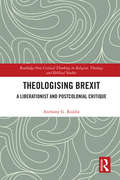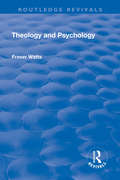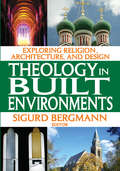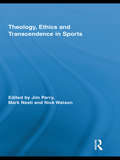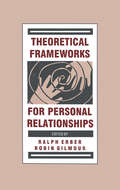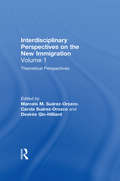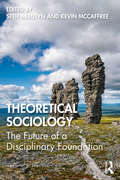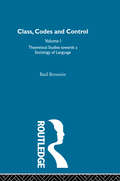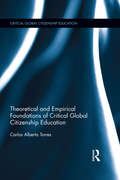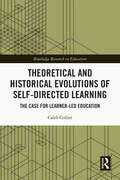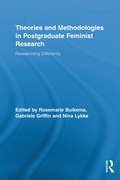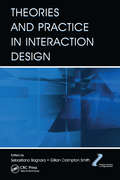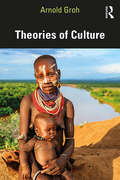- Table View
- List View
The World of Work: Industrial Society and Human Relations (Routledge Library Editions: Human Resource Management)
by Robert DubinThis book, first published in 1958, concerns American industry and commerce, and is devoted to what people do while they are working and reasons for their behaviour. This volume should prove valuable as an attempt to make systematic sense out of work in our industrial world. The balance of fact and theory is useful to those interested in understanding this complex world of working behaviour, and will be of interest to students of human resource management.
The World's Cities: Contrasting Regional, National, and Global Perspectives (The Metropolis and Modern Life)
by A. J. JacobsThe World’s Cities offers instructors and students in higher education an accessible introduction to the three major perspectives influencing city-regions worldwide: City-Regions in a World System; Nested City-Regions; and The City-Region as the Engine of Economic Activity/Growth. The book provides students with helpful essays on each perspective, case studies to illustrate each major viewpoint, and discussion questions following each reading. The World’s Cities concludes with an original essay by the editor that helps students understand how an analysis incorporating a combination of theoretical perspectives and factors can provide a richer appreciation of the world’s city dynamics.
The World-System as Unit of Analysis: Past Contributions and Future Advances (Political Economy of the World-System Annuals)
by Roberto Patricio KorzeniewiczWorld-system analyses have recast the study of between- and within-nation country inequality as constituent aspects of a single field of inquiry: the study of inequality and social stratification as processes that always have been global in their very essence. World-system analyses maintain that global social stratification pivots around institutional arrangements that render distributional outcomes as simultaneously “national,” “gendered,” “racialized,” and “global” processes. This book takes stock of some of the enduring theoretical and empirical contributions of a world-system perspective, and identifies promising directions for future inquiry and discussion. Some chapters reassess the scope and methodologies of world-system analysis around several key problems (e.g., the spatial and temporal boundaries of global commodity chains, the construction and challenge of various dimensions of social inequality, systemic and antisystemic social movements). Others take stock of areas in which world-systems are promoting methodological innovation and/or generating useful global data, and identify questions that demand additional methodological and empirical attention for future research. In different ways, this book help us to critically reconsider some of the enduring legacies within a world-system perspective (such as Karl Polanyi’s concept of the “double movement,” or the distinction drawn by Giovanni Arrighi or Immanuel Wallerstein between systemic and antisystemic movements). As argued by many of the authors in this book, a world-historical approach calls for greater sensitivity to the manifold ways in which conceptual boundaries change over time and space. Taking seriously the issue of unit of analysis, this book explores critically productive ways for better understanding global patterns of continuity and change.
The Worldliness of a Cosmopolitan Education: Passionate Lives in Public Service (Studies in Curriculum Theory Series)
by William PinarPinar positions himself against three pressing problems of the profession: the crime of collectivism that identity politics commits, the devaluation of academic knowledge by the programmatic preoccupations of teacher education, and the effacement of educational experience by standardized testing. A cosmopolitan curriculum, Pinar argues, juxtaposes the abstract and the concrete, the collective and the individual: history and biography, politics and art, public service and private passion. Such a curriculum provides passages between the subjective and the social, and in so doing, engenders that worldliness a cosmopolitan education invites. Such worldliness is vividly discernible in the lives of three heroic individuals: Jane Addams (1860-1935), Laura Bragg (1881-1978), and Pier Paolo Pasolini (1922-1975). What these disparate individuals demonstrate is the centrality of subjectivity in the cultivation of cosmopolitanism. Subjectivity takes form in the world, and the world is itself reconstructed by subjectivity’s engagement with it. In this intriguing, thought-provoking, and nuanced work, Pinar outlines a cosmopolitan curriculum focused on passionate lives in public service, providing one set of answers to how the field accepts and attends to the inextricably interwoven relations among intellectual rigor, scholarly erudition, and intense but variegated engagement with the world.
The Worlds of Patrick Geddes: Biologist, Town planner, Re-educator, Peace-warrior (Routledge Revivals)
by Philip BoardmanFirst published in 1978, The Worlds of Patrick Geddes is a study of Patrick Geddes’ thought and action, his relationships and his life, as someone who defied labelling and who was years ahead of his contemporaries. The work of Patrick Geddes (1854-1932) is coming to be more and more widely appreciated, as his ideas on many diverse subjects are being gradually assimilated into the mainstream of modern thought. Geddes has been confidently labelled as a biologist, town-planner, sociologist and educator; but he was all of these and more. This book will be of interest to students of biology, urban planning and sociology.
The Writer’s Handbook for Sociology
by Dona J YoungThe Writer’s Handbook for Sociology gives students the tools that they need to develop evidence-based writing skills and format academic papers in American Psychological Association (APA) and American Sociological Association (ASA) style. This book helps learners develop a reader-friendly writing style incorporating active voice, parallel structure, and conciseness. In addition, grammar and mechanics are presented in a systematic way to facilitate learning, helping students fill learning gaps.
The Youth Olympic Games (Routledge Research in Sport, Culture and Society)
by Barrie Houlihan Milena M. Parent Dag Vidar HanstadThe first summer Youth Olympic Games (YOG) were held in Singapore in 2010 and the first winter Youth Olympic Games in Innsbruck in 2012. The IOC hopes that the YOG will encourage young people to be more active and that they will bring the Olympic movement closer to its original founding values. This is the first book to be published on the Youth Olympic Games. It critically examines the origins of the Games and the motives of the Games organisers, as well as the organisation and management of the Games and their wider impact and significance. The first part of the book discusses the relationship between the YOG and the ideology of Olympism, in the context of broader developments in youth sport competitions. The second part investigates a wide range of managerial aspects including the bidding process, finance, the prominent role of young people on the organising committees and as volunteers, the role of media and sponsors, and the distinctive competition structure. The final part of the book assesses the current and likely future impact of the YOG on the host cities and countries, the IOC and on national youth sport policies. The Youth Olympic Games is essential reading for any researcher, advanced student or policy maker with an interest in Olympic Studies, sports development, sport policy, youth sport or event management.
The african Honey Bee
by Michael D Breed Marla Spivak David J FletcherThis book is the first review of the scientific literature on the Africanized honey bee. The African subspecies Apis mellifera scutellata (formerly adansonii) was introduced into South America in 1956 with the intent of cross-breeding it with other subspecies of bees already present in Brazil to obtain a honey bee better adapted to tropical conditions. Shortly after its introduction, some of the African stock became established in the feral population around Sao Paulo, Brazil, and spread rapidly through Brazil. It has since migrated through most of the neotropics, displacing and/or hybridizing with the previously imported subspecies of honey bees. Africanized bees have been stereotype d as having high rates of swarming and absconding, rapid colony growth, and fierce defensivebehavior. As they have spread through the neotropics they have interacted with the human population, disrupting apiculture and urban activities when high levels of defensive behavior are expressed.
The better Angels Of Capitalism: Rhetoric, Narrative, And Moral Identity Among Men Of The American Upper Class
by Andrew HermanThis book explores, through an ethnographic examination of life stories of wealthy men, a historical analysis of the moral meanings of wealth and power in Western capitalism, and a mapping of different symbolic spaces in contemporary American culture.
The: Zygmunt Bauman and Education for an Ambivalent World (Routledge Research in the Sociology of Education)
by Eric FerrisThis book critically interrogates the function of schooling in the United States of America using the writings of sociologist Zygmunt Bauman. Asking whether the function is to produce citizens, workers, a combination of the two, or something altogether different, it argues that the designs of schooling are part of a carefully crafted ordering, illustrated via an analysis of the ways in which schooling introduces students to various forms of coercion and seduction that socialize students in particular ways: ways that support an order. By engaging with the prolific and insightful works of one of the most prominent social thinkers of the 21st century, this book considers schooling and its contributions to order. Be they solid or liquid modern ordering mechanisms, ordering through repression and seduction, or supporting ordering through the creation of boundaries separating an “orderly inside” from its “disorderly outside,” schools imperfectly support the construction of order and in doing so, privilege some representations and individuals over others. To order is to harness ambivalence and steer it in directions that privilege the “in” group at the expense of the “out” group; and schools, from the curriculum they teach to the values and ideas they promote, are desirable captive marketplaces instrumental in steering this ambivalence. The author ultimately suggests that the function of schools, whether recognized or not, are not so much to educate students to be free thinkers, but rather to be orderly cogs in a particular functional social machine. As such, the book will be of interest to faculty, scholars, and postgraduate-level students with interests in the sociology of education, schooling, sociology, and social theory.
Theatre Responds to Social Trauma: Chasing the Demons (Routledge Series in Equity, Diversity, and Inclusion in Theatre and Performance)
by Ellen W. KaplanThis book is a collection of chapters by playwrights, directors, devisers, scholars, and educators whose praxis involves representing, theorizing, and performing social trauma.Chapters explore how psychic catastrophes and ruptures are often embedded in social systems of oppression and forged in zones of conflict within and across national borders. Through multiple lenses and diverse approaches, the authors examine the connections between collective trauma, social identity, and personal struggle. We look at the generational transmission of trauma, socially induced pathologies, and societal re-inscriptions of trauma, from mass incarceration to war-induced psychoses, from gendered violence through racist practices. Collective trauma may shape, protect, and preserve group identity, promoting a sense of cohesion and meaning, even as it shakes individuals through pain. Engaging with communities under significant stress through artistic practice offers a path towards reconstructing the meaning(s) of social trauma, making sense of the past, understanding the present, and re-visioning the future.The chapters combine theoretical and practical work, exploring the conceptual foundations and the artists’ processes as they interrogate the intersections of personal grief and communal mourning, through drama, poetry, and embodied performance.
Themes in Speculative Psychology
by Nehemiah JordanTavistock Press was established as a co-operative venture between the Tavistock Institute and Routledge & Kegan Paul (RKP) in the 1950s to produce a series of major contributions across the social sciences. This volume is part of a 2001 reissue of a selection of those important works which have since gone out of print, or are difficult to locate. Published by Routledge, 112 volumes in total are being brought together under the name The International Behavioural and Social Sciences Library: Classics from the Tavistock Press. Reproduced here in facsimile, this volume was originally published in 1968 and is available individually. The collection is also available in a number of themed mini-sets of between 5 and 13 volumes, or as a complete collection.
Theologising Brexit: A Liberationist and Postcolonial Critique (Routledge New Critical Thinking in Religion, Theology and Biblical Studies)
by Anthony G. ReddieThis book offers a comprehensive analysis of the theological challenge presented by the new post-Brexit epoch. The referendum vote for Britain to leave the European Union has led to a seismic shift in the ways in which parts of the British population view and judge their compatriots. The subsequent rise in the reported number of racially motivated incidents and the climate of vilification and negativity directed at anyone not viewed as ‘authentically’ British should be a matter of concern for all people. The book is comprised of a series of essays that address varying aspects of what it means to be British and the ways in which churches in Britain and the Christian faith could and should respond to a rising tide of White English nationalism. It is a provocative challenge to the all too often tolerated xenophobia, as well as the paucity of response from many church leaders in the UK. This critique is offered via the means of a prophetic, postcolonial model of Black theology that challenges the incipient sense of White entitlement and parochial ‘nativism’ that pervaded much of the referendum debate. The essays in this book challenge the church and wider society to ensure justice and equity for all, not just a privileged sense of entitlement for some. It will be of keen interest to any scholar of Black, political and liberation theology as well as those involved in cultural studies from a postcolonial perspective.
Theology and Psychology (Routledge Revivals)
by Fraser N WattsThis title was first published in 2002: Many people are now interested in the relationship between religion and science, but links between Christian belief and psychology have been relatively neglected. This book opens up the dialogue between Christian theology and modern scientific psychology, approaching the dialogue in both directions. Current scientific topics like consciousness and artificial intelligence are examined from a religious perspective. Christian themes such as God's purposes and activity in the world are then examined in the light of psychology. This accessible study on psychology and Christian belief offers students and general readers alike important insights into new areas of the "science and religion" debate.
Theology in Built Environments: Exploring Religion, Architecture and Design
by Sigurd BergmannBuilt space is both a physical entity as well as a socially and historically constructed place. It constantly interacts with human beings, affecting their behavior, thinking, and feeling. Doing religious work in a particular environment implies acknowledging the surroundings to be integral to theology itself. The contributors to this volume view buildings, scriptures, conversations, prayers, preaching, artifacts, music and drama, and built and natural surroundings as contributors to a contextual theology.The view of the environment in which religion is practiced as integrated with theology represents not just a new theme but also a necessity if one is to understand religion's own depth. Reflections about space and place and how they reflect and affect religious experience provide a challenge and an urgent necessity for theology. This is particularly important if religious practitioners are to become aware of how theology is given expression in the existential spatiality of life. Can space set theology free? This is a challenging question, one that the editor hopes can be answered, at least in part, in this volume.The diversity of theoretical concepts in aesthetics, cultural theory, and architecture are not regarded as a problem to be solved by constructing one overarching dominant theory. Instead, this diversity is viewed in terms of its positive potential to inspire discourse about theology and aesthetics. In this discourse, theology does not need to become fully dependent on one or another theory, but should always clearly present its criteria for choosing this or that theoretical framework. This volume shows clearly how different modes of design in sacred spaces capture a sense of the religious.
Theology, Ethics and Transcendence in Sports (Routledge Research in Sport, Culture and Society)
by Jim ParryThis book provides an inter-disciplinary examination of the relationship between sport, spirituality and religion. It covers a wide-range of topics, such as prayer and sport, religious and spiritual perspectives on athletic identity and ‘flow’ in sport, theological analysis of genetic performance enhancement technologies, sectarianism in Scottish football, a spiritual understanding of sport psychology consultancy in English premiership soccer and how Zen may be useful in sports performance and participation. As modern sport is often intertwined with commercial and political agendas, this book also provides an important corrective to the “win at all costs” culture of modern sport, which cannot always be fully understood through secular ethical inquiry. This is a unique and important addition to the current literature for a wide-range of fields including theology and religious studies, psychology, health studies, ethics and sports studies.
Theoretical Frameworks for Personal Relationships
by Robin Gilmour Ralph ErberThe past two decades have seen a tremendous increase in research and scholarship devoted to personal relationships. From rather scattered beginnings a recognizable and recognized field has emerged, whose strength and health is reflected in a wide array of indicators. The editors contend that while the vigor of the field is often shown in the diversity and innovation of its research, it is in the theoretical domain that they find evidence of a real coming of age. This volume provides grounds for arguing that the diversity of theorizing is particularly healthy at this point. The reader will notice that there is some diversity in terms of how much theory and research is contained in each chapter -- some are purely theoretical; others are complemented by original pieces of empirical research. The editors and contributors are from different countries -- another way in which the diversity of this book manifests itself. The variety of the frameworks presented are seen as a strength, as building on established strengths elsewhere to feed into relationship research and enhance its vitality. Each chapter makes its own contribution to thinking and research about personal relationships. As a group they add to an exciting collection that not only reflects a richness of conceptual backing, but also a wide range of usable theoretical structures.
Theoretical Perspectives: Interdisciplinary Perspectives on the New Immigration
by Marcelo M. Su Carola Su DesirThis six-volume set focuses on Latin American, Caribbean, and Asian immigration, which accounts for nearly 80 percent of all new immigration to the United States. The volumes contain the essential scholarship of the last decade and present key contributions reflecting the major theoretical, empirical, and policy debates about the new immigration. The material addresses vital issues of race, gender, and socioeconomic status as they intersect with the contemporary immigration experience. Organized by theme, each volume stands as an independent contribution to immigration studies, with seminal journal articles and book chapters from hard-to-find sources, comprising the most important literature on the subject. The individual volumes include a brief preface presenting the major themes that emerge in the materials, and a bibliography of further recommended readings. In its coverage of the most influential scholarship on the social, economic, educational, and civil rights issues revolving around new immigration, this collection provides an invaluable resource for students and researchers in a wide range of fields, including contemporary American history, public policy, education, sociology, political science, demographics, immigration law, ESL, linguistics, and more.
Theoretical Sociology: The Future of a Disciplinary Foundation
by Seth Abrutyn Kevin McCaffreeSince Durkheim’s influential work a century ago, sociological theory has been among the most integrative and useful tools for social scientists across many disciplines. Sociological theory has nevertheless, due to its usefulness, expanded so very broadly that some wonder whether the concept of "general theory," or even the attempt to link middle-range theories, is still of any use. This book, a collection of top theorists reflecting on the present and future of the craft, addresses this most important question.Taking their lead from Jonathan Turner’s important recent work, and drawing on their own broad experience, Seth Abrutyn and Kevin McCaffree have organized the chapters in this book from the general, integrative and review-focused bookend chapters to more specific chapters on innovations in theory construction at the micro, meso and macro levels. Moreover, the book’s microsociological content on interpersonal violence, solidarity, identity and emotion coheres with chapters in mesosociological dynamics on class, education and networks, which in turn integrate with the chapters on inequality, justice, morality and cultural evolution found in the section on macrosociology. The distinguished contributors share a distinct commitment to the development, innovation and relevance of general sociological theory. This volume is an invaluable sourcebook for advanced students and social science faculty interested in understanding how sociological theory’s past and present are informing its future.
Theoretical Studies Towards a Sociology of Language
by Basil BernsteinThe papers in this volume show the origin and development of Bernstein's theoretical studies into the relationships between social class, patterns of language use and the primary socialization of the child.'Bernstein's hypothesis will require [teachers] to look afresh not only at their pupils' language but at how they teach and how their pupils learn.'Douglas Barnes, Times Educational Supplement'His honesty is such that it illuminates several aspects of what it is to be a genius.'Josephine Klein, British Journal of Educational Studies
Theoretical and Empirical Foundations of Critical Global Citizenship Education (Critical Global Citizenship Education)
by Carlos Alberto TorresIn the first volume in the Critical Global Citizenship Education series, Torres combines theoretical and empirical research to present an original perspective on global citizenship education as a vitally important way of learning in a globalized world. In examining the requirements for effective global citizenship education and education reform, he investigates pathways to citizenship-building at the local, national and global levels and urges development of teaching methods, teacher education, and curriculum within a social justice education framework. Taking into account post-colonial perspectives, political realities at play, and practical implications, Torres provides a succinct but comprehensive understanding of how global citizenship education can expand the concept of civic education in a global society and interrupt inequality. This volume considers the ways that global citizenship education has been incorporated and is used by international institutions, governments, and the academy, and provides a clear framework for anyone struggling to make sense of the tensions and complexities of global citizenship education today.
Theoretical and Historical Evolutions of Self-Directed Learning: The Case for Learner-Led Education (Routledge Research in Education)
by Caleb CollierThis book analyzes the deep historical and theoretical roots of self-directed learning models in order to put forward a new conceptual understanding of self-directed learning. It utilizes philosophical methods to present arguments, both historical and contemporary, in favor of shifting education toward self-directed models and away from a view of education that places teachers, administration, curriculum, and standards at the center of the learning endeavor. This book demonstrates that self-directed learning has proven to be effective in numerous contexts and builds on this history to present a new philosophy of education termed "Eudemonic Self-Directed Learning," for individual and societal flourishing. Exploring exemplars from different cultural and historical settings to inform post-pandemic pedagogies and policies, this book will appeal to scholars and researchers of the history and philosophy of education, with interests in self-directed learning and its potential for contemporary practice.
Theories and Methodologies in Postgraduate Feminist Research: Researching Differently (Routledge Advances in Feminist Studies and Intersectionality)
by Gabriele Griffin Rosemarie Buikema Nina LykkeThis volume centers on theories and methodologies for postgraduate feminist researchers engaged in interdisciplinary research. In the context of globalization, this book gives special attention to cutting-edge approaches at the borders between humanities and social sciences and specific discipline-transgressing fields, such as feminist technoscience studies.
Theories and Practice in Interaction Design
by Craig E. RasmussenAd hoc and interdisciplinary, the field of interaction design claims no unified theory. Yet guidelines are needed. In essays by 26 major thinkers and designers, this book presents the rich mosaic of ideas which nourish the lively art of interaction design. The editors introduction is a critical survey of interaction design with a debt and contribut
Theories of Culture
by Arnold GrohThis authoritative but concise guide describes the most significant cultural theories from the 19th to the 21st century and their originators, as well as the links between them and their mutual influences. This guide explores ideas around what culture is, when and why cultures change over time and whether there are any rules or principles behind culture-related phenomena and processes. For those seeking to answer questions on culture, familiarity with these topics is essential. From refugee movements caused by wars, to the ongoing demographical changes in regions of the world like sub-Saharan Africa or the Indian subcontinent, understanding the underlying mechanisms of culture-related processes has become an immediate and essential task. Covering everything from the processes of cultural change to counterculture and destabilisation, the book explains different ideas in a clear and objective fashion and includes approaches that have been unduly neglected but which have high explanatory value regarding culture and its phenomena. Providing readers with an up-to-date idea of what culture is, and how our understanding of it has been established over the past century, this text is the perfect companion for advanced undergraduates, postgraduates and researchers.
